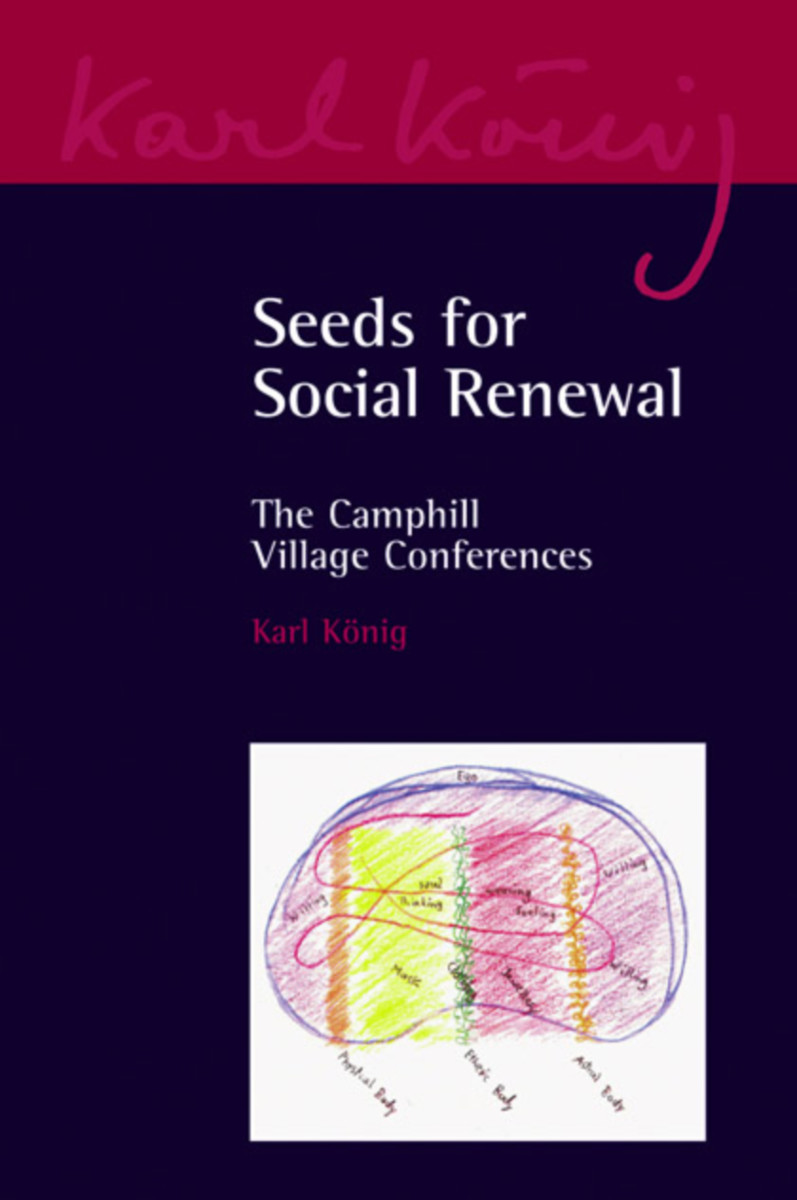Foreword by Christopher Bamford
Preface by Nick Poole
Edited by Wanda Root and Michael Schmundt
- Publisher
Floris Books - Published
20th November 2009 - ISBN 9780863157042
- Language English
- Pages 224 pp.
In these lectures, König explores the human being and social life, the individual and community, from an imaginative and often radical perspective. These explorations range majestically from masks and archetypal images, the threefold constitution in man and woman, the karma of vocation, and the fundamental social law, to the place of work, religion and culture within the threefold social organism, and karma and reincarnation.
The lectures arose from Dr. König’s experiences in establishing and building Camphill Communities with extraordinary people with special needs. They are important both for the work in Camphill, as well as more broadly in the field of social therapy and beyond.
This is a revised and expanded edition of the “Village Conference Lectures” of Karl König, previously published as In Need of Special Understanding.
“König’s insights in human development ought to be essential reading for all those working in education, healthcare and care, whether special needs or other, such as raising a family. He deserves to be read much more widely outside the Camphill movement.... I applaud the efforts of the people behind the Karl König archive to make his work available in print. It is a tremendous task, not only because of the volume of material but also because of its importance. Serious, yet very accessible; a work not just for Camphill.”
New View, summer 2010
C O N T E N T S:
Foreword by Christopher Bamford
Preface by Nick Poole
Editor’s Note
The Image of the Human Being in Village Life
Introduction
Masks of Humanity and Leading Images
Light and Shadow
Constitutional Types and Human Threefoldness
The Threefold Constitution of the Human Being
Introduction
Mask, Jewelry, Clothing—Three Aspects of the Ego
Becoming World – Becoming Human – Being Human
How Could Villagers Share in Running the Village?
The Threefold Human Being and Male and Female
Learning and Working—The Karma of Vocation
Learning and Working
Forces of Karma
The Threefold Social Organism
Appendix:
The Ego
The Threefold Social Order
Lucifer and Ahriman
The Will Seeking the Human Form
Three Tasks of the Village and the Three Great Errors
Karl König’s Discussion of Albumin
Karl König’s Blackboard Drawing
Facsimile of Karl König’s Notes
Notes
Bibliography
Index
Karl König
Dr. Karl König (1902–1966) born on September 25th 1902 in Vienna, Austria, the only son of a Jewish family who owned a shoe shop. He studied zoology, biology, and medicine at the University of Vienna, graduating in 1927. During his studies on embryology, König encountered the works of Rudolf Steiner through Goethe's scientific writings. He immediately identified with Steiner and was soon acquainted with a number of his followers, including Ita Wegman.
Upon graduation, König was offered several high-profile positions in Vienna, but instead accepted an invitation from Ita Wegman to join her clinic in Arlesheim, Switzerland.
König's time at the Clinic would shape the Camphill movement. It was here that he met his wife and co-founder, Tilla Maasberg, and it was here that he first witnessed the Advent Garden. During this festival, during which children with learning disabilities circle a spiral of moss, lighting a candle from a large central beacon, he promised to dedicate his life “to the care and education of these children.”
Following his time at Arlesheim, König moved to Germany and was involved in founding the Pilgramshain Institute—one of the early curative educational (therapeutic) centers based on anthroposophy. However, due to the political pressure of the Nazi regime, König was forced to leave Germany in 1936. He returned to Vienna, where he operated a successful medical practice and led anthroposophic study groups until 1938.
Fleeing Austria after Nazi annexation in 1938, König became part of a small group of doctors, teachers, and artists to be granted political asylum in the United Kingdom in 1939. König moved to Aberdeenshire, Scotland, where this group founded a home for children with learning disabilities, which became the beginning of the Camphill movement. After World War II, more schools were established, as well as curative education villages for adults with disabilities, based on the ideal of working together as a community.
In the following decades, König's Aberdeenshire community grew and expanded into Britain, Europe, and North America, becoming the Camphill movement we know today. During this period, König worked tirelessly to help children and adults with special needs through publications, talks, and seminars—as well as by establishing communities around the world.
Karl König returned to Germany in 1964 and began yet another community, this one near Überlingen, on Lake Constance (Bodensee), where he died in 1966.


